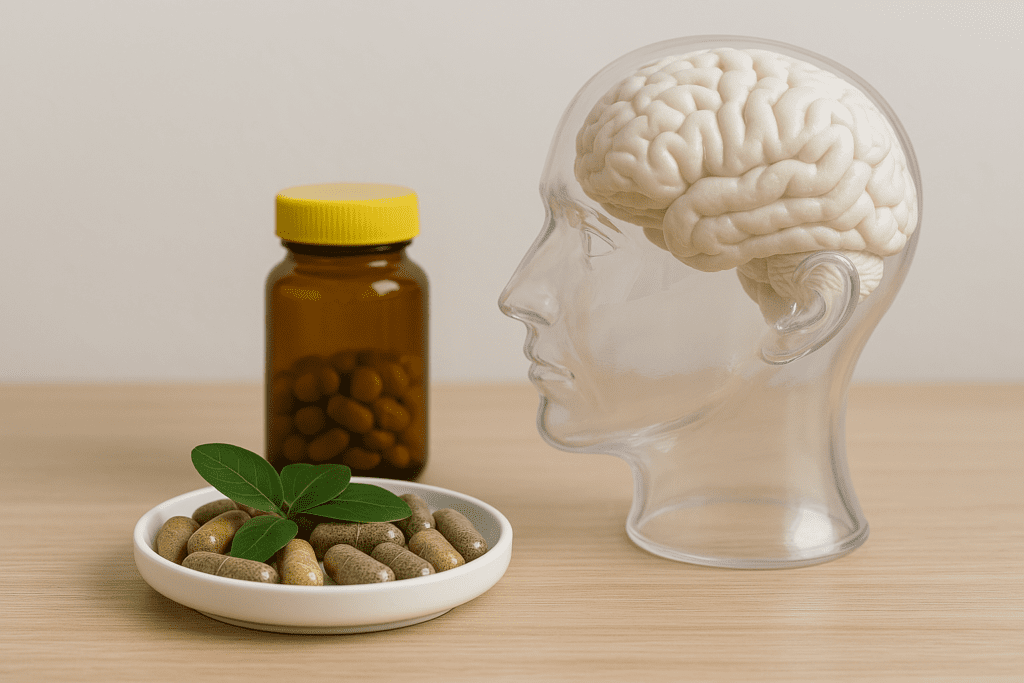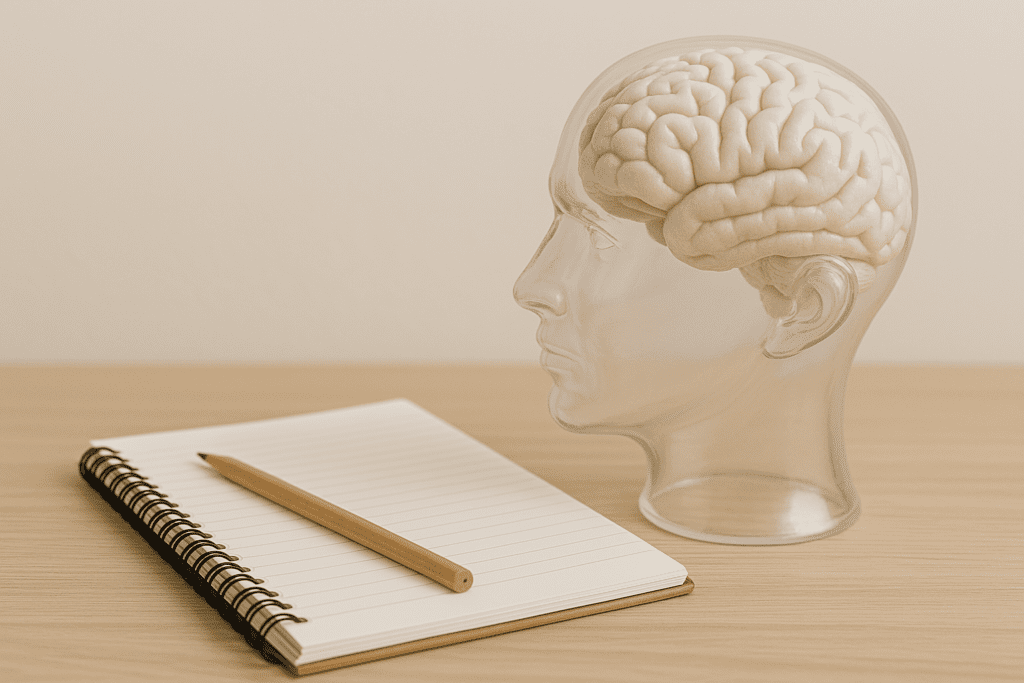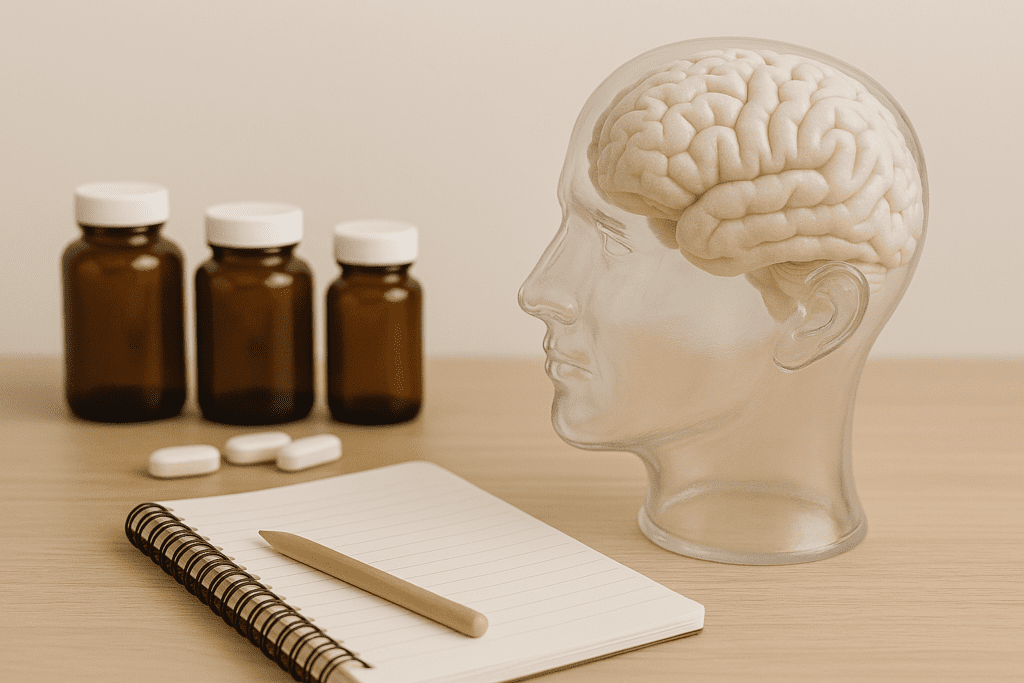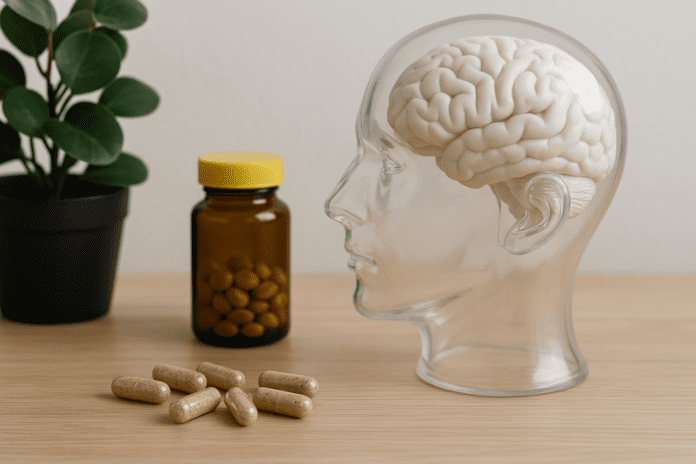In today’s fast-paced, distraction-heavy world, maintaining focus and mental clarity can be a struggle for many, especially those affected by attention-deficit/hyperactivity disorder (ADHD). While prescription medications such as methylphenidate and amphetamine-based drugs are commonly used to manage symptoms, an increasing number of individuals are exploring over the counter ADHD medication options. These alternatives appeal to those who seek non-prescription solutions due to side effects, accessibility issues, or a preference for natural treatments.
You may also like: How to Improve Focus and Concentration: Proven Techniques for Boosting Mental Clarity and Productivity
Understanding the growing interest in over the counter ADHD meds requires a comprehensive look at the science behind attention and executive function, the limitations of conventional treatments, and the emerging role of supplements, herbs, and lifestyle interventions. This article explores non prescription ADHD medicine choices that may offer cognitive support, with an emphasis on evidence-based approaches and long-term brain health.
The Rise in Demand for Over the Counter ADHD Medication
The use of over the counter drugs for ADHD has surged in recent years. Factors contributing to this trend include increased awareness of ADHD in adults, concern about long-term use of stimulant medications, and a broader societal shift toward integrative, natural health solutions. Many individuals report being unable to access traditional care due to cost or provider shortages, especially in rural or underserved areas. This has fueled interest in non prescription medication for ADHD as a more accessible route to symptom management.
Parents of children with attention issues often seek natural remedies for childhood ADHD in hopes of minimizing exposure to stimulants during developmental years. Adults, particularly those newly diagnosed later in life, frequently look for non prescription ADHD medication for adults to support focus, memory, and impulse control without the side effects sometimes associated with traditional stimulants.
Evaluating the Effectiveness of Non Prescription ADHD Meds
While prescription medications for ADHD are backed by decades of clinical trials, the evidence for over the counter alternatives is more varied. However, this does not mean they are ineffective. Certain compounds have shown promise in supporting cognitive performance, reducing hyperactivity, and enhancing executive function. These include amino acids like L-tyrosine, herbal extracts like ginkgo biloba, and nutrients such as omega-3 fatty acids, zinc, magnesium, and iron.
It is essential to distinguish between anecdotal support and clinical validation. A rigorous assessment of any ADHD medication substitute should include a review of double-blind, placebo-controlled studies, as well as meta-analyses when available. This ensures that any claim about otc focus medication stands on a solid scientific foundation. Although results can vary based on individual neurobiology and comorbidities, many users report improvements in concentration and task completion when using thoughtfully selected non prescription ADHD meds.

Understanding Natural ADHD Alternatives to Drugs
The category of ADHD alternatives to drugs includes a diverse range of interventions, from dietary changes to mindfulness training. However, natural supplements are often the cornerstone of over the counter attention deficit medication strategies. These include adaptogens, nootropics, and plant-based compounds that may influence neurotransmitter activity or reduce inflammation in the brain.
Bacopa monnieri, for example, is a traditional Ayurvedic herb studied for its ability to enhance memory and reduce distractibility. Similarly, Rhodiola rosea is an adaptogen that may reduce mental fatigue and improve cognitive stamina. These ingredients are often marketed as part of over the counter medicine for ADHD, particularly in formulations labeled as focus or cognitive enhancement supplements.
Other products claim to be a natural substitute for Ritalin, targeting similar neurotransmitter systems without the stimulant profile. These alternatives to ADHD medication for adults are particularly attractive to those who want symptom relief without the risk of dependence or cardiovascular strain.
The Role of Diet and Lifestyle in Managing Symptoms
No discussion of alternatives to ADHD meds is complete without acknowledging the powerful role of nutrition, sleep, and physical activity. Research suggests that certain dietary patterns may influence attention and behavior. Diets high in refined sugar and low in essential fatty acids may worsen symptoms, while diets rich in lean protein, complex carbohydrates, and healthy fats can support neurotransmitter balance.
For many, the question of how to treat hyperactivity begins not with pills but with daily habits. Regular aerobic exercise increases dopamine and norepinephrine levels in the brain—two key neurotransmitters implicated in ADHD. Similarly, consistent sleep hygiene supports prefrontal cortex function, enhancing impulse control and decision-making. These strategies, when combined with over the counter ADHD pills, can offer a holistic approach to symptom management.
Emerging Science Behind Non Prescription ADHD Medication for Adults
The search for non prescription ADHD medication for adults has intensified as more adults are diagnosed or self-identify with attention-related challenges. Unlike in childhood, adult ADHD often manifests through chronic disorganization, difficulty completing tasks, and frequent distractibility. While stimulants are effective for many, others prefer otc ADHD options due to concerns over long-term use.
Recent studies have highlighted the potential of cognitive-enhancing compounds such as L-theanine and caffeine in synergy, phosphatidylserine, and acetyl-L-carnitine. These agents may improve focus and mental energy without the crash associated with some prescription stimulants. When used in moderation and under professional guidance, these compounds can act as safe and effective over the counter focus medication.
Understanding How to Cure Attention Deficit Disorder Naturally
While there is currently no definitive cure for ADHD, the idea of how to cure attention deficit disorder often involves a blend of strategies aimed at reducing symptom severity and improving quality of life. Natural approaches focus on restoring balance in the brain and nervous system, often through lifestyle optimization, nutritional therapy, and targeted supplementation.
This is especially relevant for those seeking ADHD medication substitutes. Although these natural remedies may not offer an overnight solution, they can contribute to meaningful improvement over time. Brain training exercises, mindfulness-based interventions, and social support networks can also play a significant role in sustaining behavioral changes and cognitive performance.
Exploring the Science of Natural Ritalin Alternatives
The concept of natural Ritalin is often used to describe products or compounds that mimic the focus-enhancing effects of prescription stimulants without the side effects or addictive potential. These alternatives to ADHD meds for adults typically include combinations of herbal nootropics, amino acids, and vitamins that support dopamine and acetylcholine production.
One of the most researched natural alternatives to methylphenidate is citicoline, a compound that supports cellular energy and phospholipid synthesis in the brain. Others include panax ginseng and green tea extract, both of which may enhance mental clarity and reduce fatigue. These ingredients, often found in over the counter ADHD meds for adults, appeal to those seeking safer, long-term solutions for focus and attention.
Parental Considerations for Childhood ADHD Remedies
For parents navigating the complex landscape of ADHD treatment, the appeal of natural remedies for childhood ADHD is understandable. Concerns about growth suppression, sleep issues, and appetite loss related to stimulant use motivate many to explore dietary and supplement-based alternatives. However, caution is warranted, and any approach should be discussed with a pediatrician or integrative medicine specialist.
Several nutrients have been linked to improved outcomes in children with ADHD, including zinc, magnesium, iron, and omega-3 fatty acids. Behavioral interventions and family therapy can further enhance these effects, making natural approaches more comprehensive. Though not all over the counter drugs for ADHD are suitable for children, formulations designed with safety and age-appropriateness in mind can be part of a broader strategy to support healthy development.
The Neurochemical Mechanisms Behind OTC ADHD Medications
Understanding the neurochemical basis of OTC ADHD interventions helps clarify their potential benefits and limitations. Many over the counter medicine for add or ADHD support products work by influencing dopamine, norepinephrine, or acetylcholine levels in the brain. Others may improve cerebral blood flow, enhance mitochondrial function, or modulate stress hormones like cortisol.
For instance, tyrosine is a precursor to dopamine and norepinephrine, making it a logical component of over the counter ADHD meds. Phosphatidylserine helps maintain cell membrane integrity in neurons, while B vitamins are essential for neurotransmitter synthesis. These ingredients, when taken in appropriate dosages and combined with healthy habits, can serve as practical tools for those exploring ADHD over the counter alternatives.
Addressing the Question: Is There Any Cure for ADHD?
Although there is no universally recognized cure for ADHD, the question “is there any cure for ADHD” is often posed by individuals seeking lasting relief. The answer lies in a nuanced understanding of the condition as both a neurological and behavioral spectrum. While symptoms can be managed effectively through medication and non-pharmacological approaches, the goal is often improved functioning rather than complete elimination of all traits.
Some individuals experience a significant reduction in symptoms with age, especially when they adopt consistent lifestyle habits, develop coping strategies, and engage in supportive therapy. For others, long-term symptom management through a combination of strategies, including over the counter attention deficit medication and structured behavioral interventions, remains essential. The most sustainable path tends to be one rooted in personalization, ongoing evaluation, and a willingness to adapt.
Weighing the Risks and Benefits of ADHD Alternatives to Drugs
When considering ADHD alternatives to drugs, it is crucial to weigh the potential benefits against the limitations. Over the counter focus medication may offer fewer side effects and a more gradual mode of action, which can be appealing for those sensitive to stimulants. However, these alternatives often require longer trial periods and may have less predictable results.
Another consideration is the regulation of over the counter ADHD pills. Unlike prescription drugs, supplements are not subject to the same rigorous oversight. This places the responsibility on consumers to seek high-quality products from reputable manufacturers. Consulting with healthcare providers familiar with both conventional and integrative approaches can help ensure safe and effective use.

Holistic Strategies That Complement OTC ADHD Options
To maximize the benefits of any over the counter ADHD medication, it is wise to incorporate complementary therapies and lifestyle practices. Cognitive behavioral therapy (CBT) remains one of the most evidence-based psychological interventions for ADHD. Combined with mindfulness meditation and biofeedback, CBT can significantly reduce impulsivity and improve emotional regulation.
Incorporating structured routines, goal-setting systems, and environmental modifications can further enhance focus and productivity. Nutritional coaching and sleep optimization also play a pivotal role. By viewing over the counter ADHD meds as one piece of a larger puzzle, individuals can design a more resilient, multifaceted approach to brain health.
The Future of ADHD Treatment: Integrative and Personalized Paths
As research advances, the future of ADHD treatment is likely to become more integrative and personalized. Precision medicine approaches, which consider genetic, environmental, and lifestyle factors, are already influencing how clinicians tailor treatment plans. In this context, over the counter ADHD medication may become a central component of a tiered intervention strategy.
Digital health tools, including cognitive training apps and wearable neurofeedback devices, are adding new dimensions to symptom tracking and management. These innovations, when combined with natural therapies and evidence-based otc ADHD supplements, create new possibilities for those seeking alternatives to traditional pharmaceutical regimens.
Frequently Asked Questions: Smart Alternatives to ADHD Meds
1. Are over the counter ADHD meds effective enough for adults with moderate symptoms?
While over the counter ADHD medication may not be as potent as prescription stimulants, many adults with moderate symptoms find substantial benefit in consistent use. These non prescription ADHD medication for adults options often work through more subtle mechanisms, such as supporting neurotransmitter production or enhancing cognitive resilience through adaptogenic herbs. Supplements like L-tyrosine, citicoline, and Rhodiola rosea can gradually improve attention, especially when combined with lifestyle interventions. Effectiveness can vary based on individual brain chemistry, so tracking symptoms and adjusting dosages under the supervision of a knowledgeable practitioner is recommended. It’s also worth noting that long-term benefits of over the counter ADHD meds may accrue more slowly but can be more sustainable than stimulant-based interventions.
2. How do over the counter drugs for ADHD compare to prescription options in terms of side effects?
One of the primary advantages of over the counter drugs for ADHD is the generally lower risk of severe side effects. While prescription stimulants may cause insomnia, elevated heart rate, or appetite suppression, most over the counter attention deficit medication products aim to support rather than override natural brain function. Some individuals, however, may still experience mild side effects such as digestive discomfort or headaches, particularly if they take higher-than-recommended doses. Non prescription ADHD meds often allow more flexibility and less abrupt changes in mental state, which can make them easier to incorporate into daily routines. For individuals concerned with long-term health impacts, choosing over the counter medicine for ADHD can offer peace of mind with a gentler physiological profile.
3. What should parents consider when choosing natural remedies for childhood ADHD?
Parents exploring natural remedies for childhood ADHD should approach the process with careful research and medical guidance. While omega-3 fatty acids, magnesium, and zinc have shown promise in supporting attention and impulse control in children, dosage and purity are critical factors. Over the counter ADHD medication for kids should be selected based on age-appropriateness, safety profiles, and transparent sourcing. In addition, behavioral therapies and structured routines often enhance the effects of these natural supports. Integrating natural remedies with guidance from pediatric neurologists or integrative medicine doctors ensures that alternatives to ADHD meds are safe and developmentally appropriate.
4. Are there any emerging trends in alternatives to ADHD medication for adults?
A promising trend in alternatives to ADHD medication for adults is the growing use of technology-driven cognitive enhancement. This includes wearable devices that provide neurofeedback, as well as mobile apps designed to improve executive function through gamified exercises. In addition to these digital tools, newer supplements like saffron extract and lion’s mane mushroom are being researched for their neuroprotective and focus-enhancing properties. These are being incorporated into over the counter focus medication blends with increasing frequency. When combined with established practices like meditation and strategic nutrition, these tools can form the basis of a modern, non prescription ADHD medicine toolkit for adult users.
5. Can natural substitutes for Ritalin deliver similar benefits for cognitive performance?
While natural substitutes for Ritalin are unlikely to replicate the immediate, high-potency effects of methylphenidate, they can still be remarkably effective for improving cognitive performance over time. Compounds such as citicoline, panax ginseng, and L-theanine work by enhancing neurotransmitter balance, reducing mental fatigue, and promoting neuroplasticity. These ingredients, often found in over the counter ADHD meds for adults, offer a more nuanced and holistic approach to mental clarity. Additionally, they typically carry fewer cardiovascular risks than stimulant drugs, making them appealing to health-conscious consumers. By combining these with consistent sleep hygiene and exercise, users may experience enhanced focus with fewer downsides.
6. What role does diet play in supporting the effects of non prescription ADHD medication?
Diet plays a pivotal role in amplifying the effects of non prescription medication for ADHD. A nutrient-dense diet rich in whole foods can support neurotransmitter synthesis, reduce inflammation, and stabilize blood sugar—all of which impact attention and impulse control. Nutritional gaps in B vitamins, iron, or omega-3s can hinder the effectiveness of over the counter ADHD pills, making proper diet an essential companion to supplementation. For example, protein-rich meals support dopamine production, while leafy greens supply essential cofactors for methylation pathways. Those relying on non prescription ADHD meds may find that tailored nutritional plans help unlock the full cognitive potential of these alternatives.
7. Is there any cure for ADHD, or are management strategies the only viable option?
Although many people ask whether there is any cure for ADHD, current medical consensus views ADHD as a chronic neurodevelopmental condition that is managed rather than cured. However, symptom severity can decrease significantly over time, especially when personalized treatment plans are implemented. These may include behavioral therapy, coaching, over the counter ADHD medication, and lifestyle changes. While some individuals experience full functional remission, especially in adulthood, it is more accurate to speak in terms of long-term management and adaptive strategies. Incorporating alternatives to ADHD meds into a broader wellness framework can contribute to a high quality of life and reduced symptom burden.
8. How can individuals assess whether an ADHD medication substitute is working effectively?
To determine whether an ADHD medication substitute is having a meaningful impact, it’s helpful to track progress through both subjective experiences and objective metrics. Journaling focus levels, productivity, mood, and sleep patterns over a few weeks can provide valuable insight. There are also validated self-report questionnaires, such as the Adult ADHD Self-Report Scale (ASRS), that can help gauge improvements. Some over the counter ADHD meds have a cumulative effect, so it’s important to allow adequate time before making conclusions. Additionally, consulting with a healthcare provider familiar with otc ADHD options can help refine dosage or identify synergistic combinations to improve outcomes.
9. Are over the counter ADHD pills suitable for seniors experiencing attention decline?
Yes, over the counter ADHD pills are increasingly being explored by older adults facing attention and memory challenges that may not meet criteria for a formal ADHD diagnosis. Non prescription ADHD medication for adults in the senior population often focuses on neuroprotection and cognitive longevity, addressing inflammation and oxidative stress as contributing factors. Ingredients such as phosphatidylserine, acetyl-L-carnitine, and vinpocetine are common in these formulas and may enhance mental agility. Seniors considering over the counter medicine for add or attention issues should review interactions with current prescriptions and consult a healthcare provider. These formulations may offer gentle cognitive support, especially when cognitive therapy or brain-training exercises are also incorporated.
10. What are the key differences between otc focus medication and traditional ADHD treatment approaches?
The primary difference between otc focus medication and traditional ADHD treatment lies in the mechanism and intensity of action. Prescription treatments like Adderall or Ritalin directly stimulate neurotransmitter release, often producing immediate changes in attention and energy. In contrast, over the counter ADHD meds work more gradually, often by nourishing pathways involved in cognitive function or reducing neural stress. This makes otc ADHD solutions appealing to those who prioritize long-term brain health and minimal side effects. While not a direct replacement in all cases, these alternatives offer a complementary or substitute route for those looking to reduce pharmaceutical dependence or explore integrative options.

Conclusion: Exploring Smart, Safe Alternatives to ADHD Meds for Cognitive Wellness
Navigating the wide array of ADHD treatments requires thoughtful consideration of personal needs, scientific evidence, and long-term brain health. For many, the appeal of over the counter ADHD meds lies in their accessibility, gentler side effect profiles, and alignment with holistic wellness values. Whether you are an adult looking for non prescription ADHD medication for adults or a parent exploring natural remedies for childhood ADHD, the range of options is expanding in both quality and credibility.
While no single solution works for everyone, the combination of over the counter medicine for ADHD, lifestyle optimization, and behavioral strategies can create a sustainable path toward improved focus and cognitive function. As the demand for alternatives to ADHD medication continues to rise, it is essential to stay informed, consult professionals, and remain open to evolving science. Ultimately, the goal is not only to manage symptoms but to enhance daily functioning, foster personal growth, and support long-term cognitive health through smart, evidence-based choices.
natural focus supplements, cognitive enhancement strategies, brain health support, attention boosting herbs, nootropic alternatives, executive function improvement, adult attention challenges, natural cognitive enhancers, herbal brain boosters, holistic mental clarity, neurodivergent support options, brain fog remedies, integrative ADHD treatment, cognitive resilience supplements, focus and memory support, dopamine boosting foods, stimulant-free focus solutions, mind-body interventions for ADHD, mental performance optimization, natural brain function aids
Further Reading:
Non-Drug Treatments for ADHD: New Options for Kids, Adults and Clinicians
Can You Treat ADHD Without Medication?
Complementary and Alternative Treatment of ADHD
Disclaimer
The information contained in this article is provided for general informational purposes only and is not intended to serve as medical, legal, or professional advice. While Health11News strives to present accurate, up-to-date, and reliable content, no warranty or guarantee, expressed or implied, is made regarding the completeness, accuracy, or adequacy of the information provided. Readers are strongly advised to seek the guidance of a qualified healthcare provider or other relevant professionals before acting on any information contained in this article. Health11News, its authors, editors, and contributors expressly disclaim any liability for any damages, losses, or consequences arising directly or indirectly from the use, interpretation, or reliance on any information presented herein. The views and opinions expressed in this article are those of the author(s) and do not necessarily reflect the official policies or positions of Health11News.


